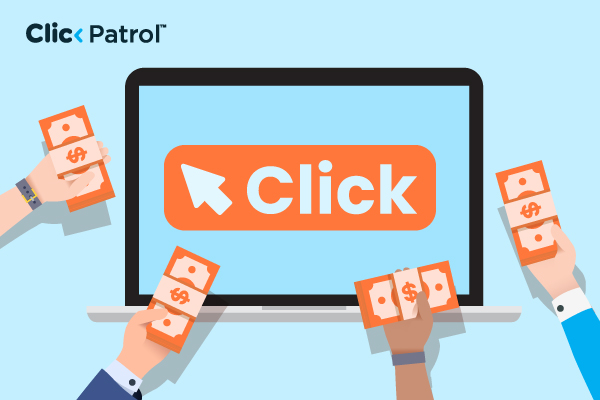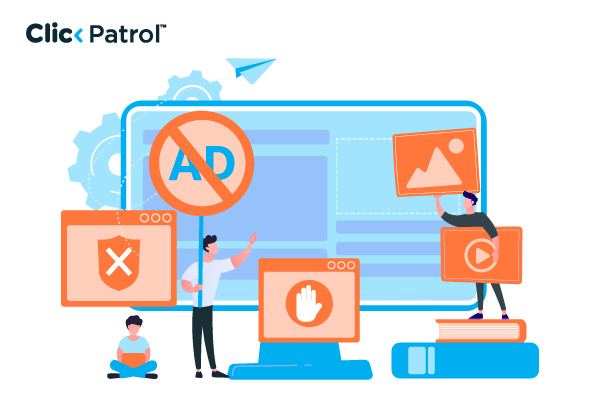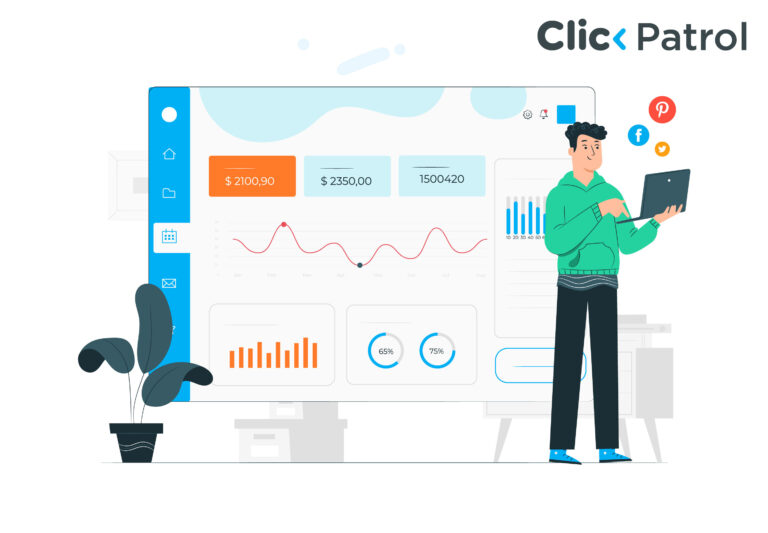During the holiday season CPCs rise, budgets are increased and more scammers are active online, which means each fake or abusive click costs more and consumes limited daily budgets faster. High intent keywords around gifts and deals are heavily targeted, so a relatively small amount of invalid traffic can have a larger impact on performance and reporting than it would at quieter times of the year.
How PPC Advertisers Can Avoid Scams and Click Fraud This Holiday Season
Abisola Tanzako | Nov 20, 2025

Holiday shopping brings a spike in consumer demand, and with it a surge in scams, fake activity and click fraud that quietly drain ad budgets. For PPC advertisers in Google Ads, Meta Ads and Microsoft Ads, the holiday season is now one of the riskiest periods for invalid traffic. At ClickPatrol, we are seeing more fake clicks, automated browsing and repeated abuse targeting high intent campaigns exactly when bids and budgets are at their peak.
Table of Contents
- Holiday scams are rising and digital ads are in the crossfire
- Key holiday fraud risks for PPC advertisers
- Why click fraud hurts more during the holiday season
- Practical steps to avoid scams and click fraud in your PPC campaigns
- Tighten traffic and placement controls
- Watch behavioral signals, not just click counts
- Limit exposure of high value campaigns
- How ClickPatrol protects holiday PPC budgets
- What this means for PPC teams preparing for the holidays
Holiday scams are rising and digital ads are in the crossfire
Consumer protection agencies and law enforcement warn that online scams increase significantly in the final weeks of the year. Phishing pages, fake online stores and misleading offer sites proliferate as fraudsters attempt to capture payment data and personal information.
For performance marketers, the problem is not limited to end customers getting scammed. Many of these schemes rely on paid traffic. Fraudsters click on search and social ads to test stolen cards, cloak their scam sites or simply monetize fake traffic. That activity shows up in your accounts as paid sessions and engagements, while delivering zero commercial value.
We regularly review holiday accounts where a sudden jump in clicks, particularly from unusual placements or devices, masks a flat or declining conversion rate. Without proper protection, that mix of scams and click fraud can easily consume a double digit share of seasonal budgets.
Key holiday fraud risks for PPC advertisers
Based on industry alerts and what we see across accounts every Q4, several patterns create heightened exposure for advertisers.
- Gift and deal keywords attract abuse: Searches around gift ideas, discounts and last minute deals attract both real buyers and organized fraud. High CPCs on these terms make every fake click more expensive.
- Retargeting pools are heavily tested: Bots and bad actors often trigger remarketing ads multiple times. This inflates frequency, distorts view based metrics and eats into limited retargeting budgets.
- Mobile and in app inventory is noisier: Accidental taps, incentivized placements and automated app traffic all tend to rise during holiday downtime, especially on entertainment and gaming inventory.
- Short lived scam sites buy traffic aggressively: Fraud websites often run short campaigns that bid aggressively for high intent keywords. Their activity can trigger competitive click bombing and suspicious patterns on legitimate advertisers in the same auctions.
Why click fraud hurts more during the holiday season
Click fraud is always wasteful, but during the holidays the impact compounds. CPCs are higher, conversion windows are tighter and revenue targets are more aggressive. When 5 to 15 percent of clicks in a key campaign are fake or non human, the drag on performance is amplified.
We see several common effects in unprotected accounts during this period:
- Budget limits get hit earlier in the day, blocking real buyers later in peak shopping hours.
- Smart bidding strategies are pushed toward segments and placements that appear to perform based on fake engagement signals.
- Attribution reports show inflated click and session counts, which leads teams to overcredit poor channels and underfund profitable ones.
The result is a quieter but very real form of fraud loss. Marketers feel they are just suffering from higher competition or weaker consumer demand, when in reality a chunk of their spend never had any chance of converting.
Practical steps to avoid scams and click fraud in your PPC campaigns
While consumer advice focuses on avoiding suspicious emails or too good to be true deals, advertisers need a different playbook. Based on what we track in ClickPatrol, several controls make a meaningful difference in protecting budgets in November and December.
Tighten traffic and placement controls
Review where your clicks actually originate. For search campaigns, audit partner networks and exclude low quality search partners if your logs show repeated invalid activity. For display and social, use placement reports and block app categories or site types that repeatedly send high click volumes with low engagement.
If your traffic quality suddenly changes by region or device, use granular bid adjustments or exclusions. For example, a sudden spike in late night mobile clicks from a small region with almost no conversions warns of potential click abuse.
Watch behavioral signals, not just click counts
Most holiday scammers will not behave like real shoppers. Look beyond surface metrics and track:
- Very short sessions that bounce before any realistic interaction.
- Identical click paths that repeat from the same IP ranges or device fingerprints.
- Unusual patterns like dozens of clicks from the same user agent in a short window.
These are the signals our systems use in real time to classify and block fake or abusive clicks before they consume more of your budget.
Limit exposure of high value campaigns
High intent campaigns around specific products or high ticket items are prime targets for click fraud. During the season, consider:
- Using stricter location and device targeting on your most profitable campaigns.
- Splitting branded and generic terms, so you can monitor anomalies on each group separately.
- Raising thresholds for automated rules and manual reviews when CPCs spike.
By lowering the surface area of your most sensitive campaigns, you make it harder for fraudsters and automated traffic to drain the budgets that matter most.
How ClickPatrol protects holiday PPC budgets
ClickPatrol monitors every click on your Google Ads, Meta Ads and Microsoft Ads campaigns and evaluates dozens of behavioral and technical data points. When we detect patterns that match fake users, bots or abusive repeat activity, those sources are automatically blocked so they cannot keep spending your budget.
That protection has three important benefits in the holiday period:
- Cleaner data: With fake clicks filtered out, your conversion rates, cost per acquisition and channel comparisons reflect real users only.
- Better decisions: Smart bidding and manual optimizations are based on reliable signals, so you can confidently scale campaigns that truly perform.
- Budget protection: More of your daily spend reaches genuine shoppers who are ready to buy, instead of disappearing into scams or non human traffic.
For performance marketers planning their holiday push, this is a practical way to reduce risk. You can start a free trial of ClickPatrol or speak with our team to review where your current campaigns might be exposed to invalid traffic before peak shopping days hit.
What this means for PPC teams preparing for the holidays
Holiday fraud is not just a consumer issue. It directly affects your ad spend, reporting and the trust your stakeholders place in paid channels. The combination of higher bids, larger daily budgets and more scammers means that even a modest level of click fraud can translate into significant financial loss.
PPC leaders should treat traffic quality as part of their seasonal planning alongside creative, offers and bid strategies. With the right monitoring and automatic blocking in place, you can focus on winning holiday demand instead of fighting hidden scams in your traffic.
Frequently Asked Questions
-
Why is click fraud worse during the holiday season for PPC advertisers?
-
How can I tell if my Google Ads or Meta campaigns are being hit by holiday scams or click fraud?
Warning signs include sudden spikes in clicks without a corresponding lift in conversions, repeated clicks from the same IP ranges or devices, very short sessions from paid traffic, and unusual changes in performance by region, device or placement. If you see these patterns during the holiday period while competition and bids are rising, it is likely that scams or invalid traffic are affecting your campaigns.
-
What practical steps can PPC teams take to avoid scams and fake clicks in Q4?
PPC teams should tighten location and device targeting on high value campaigns, review placement and search partner reports, exclude low quality apps or sites, and monitor behavioral metrics such as bounce rate and session duration from paid traffic. Adding automated blocking through a specialist tool and scheduling more frequent account checks across peak shopping days also helps limit exposure to scams and fake clicks.
-
How does ClickPatrol help protect my holiday ad budget from click fraud and invalid traffic?
ClickPatrol analyzes each click across Google Ads, Meta Ads and Microsoft Ads using multiple behavioral and technical signals to spot fake users, bots and abusive repeat activity. When suspicious sources are identified, ClickPatrol blocks them from seeing or clicking your ads again, which reduces wasted spend, keeps your campaign data cleaner and allows you to allocate more of your budget to real shoppers who are likely to convert.
-
Should I adjust my bidding strategy if I suspect more click fraud during the holidays?
If you suspect higher levels of invalid traffic, it makes sense to review smart bidding performance, tighten targeting and set more conservative bids on risky segments while you improve protection. Once tools like ClickPatrol are in place to filter fake activity and your data looks stable again, you can increase bids and budgets more confidently knowing that the extra spend is reaching genuine users rather than scammers or automated clicks.






